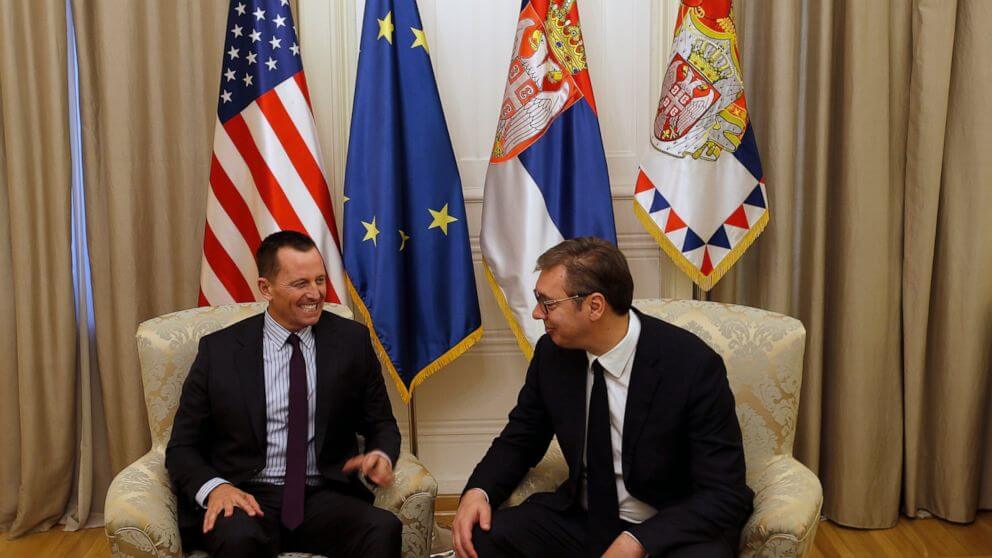In an interview with RFE/RL in Pristina, United States Ambassador to Kosovo Philip Kosnett revealed that Washington is committed to fully normalizing relations between Serbia and Kosovo by encouraging both sides to compromise and turn their promises into reality. Kosnett stressed that regional development and economic cooperation in the Balkans is a “high policy priority” for the White House.
Earlier this month, Kosovar Prime Minister Avdullah Hoti and Serbian President Aleksandar Vucic signed an economic normalization agreement in Washington. After two days of negotiations, the leaders committed to cooperate on a number of economic and trade fronts to attract investments, create transport connections, and generate employment. The agreement also called for Belgrade to shift its Israeli embassy to Jerusalem and for “mutual recognition by Israel and Kosovo”. This marked the first real sign of partnership between the adversarial neighbors since European Union (EU)-brokered talks fell through two years ago, leading to a tariff war over Serbia’s policy to pressurize governments not to recognize Kosovo.
While the announcement added another accolade to US President Donald Trump’s diplomatic achievements ahead of the country’s upcoming presidential elections, it seemed to gain more resonance from the pro-Israeli lobby than it did impress the Europeans in the US, who continued to remain skeptical of the success of the negotiations. Experts believe that the pact failed to acknowledge the crucial international demand for Serbia to formally recognize its former province since Kosovo declared independence in 2008. Yet, Trump claims that he deserves the Nobel Peace Prize for brokering the agreement between the two Balkan adversaries, which he claims has ended “mass killings”.
Yesterday, Richard Grenell, the US special envoy for Serbia-Kosovo peace talks, along with other American officials, visited Kosovo as a part of a larger tour of Eastern Europe. The delegation included senior officials from the US development bank, the US Agency for International Development, and the US International Development Finance Corporation (IDFC). Adam Boehler, CEO of the IDFC, said that the country was offering investment opportunities for “a pipeline of over a billion dollars of projects” spanning natural gas, roads, railways, and MSMEs. Kosnett said that the US EXIM bank would provide the crucial trade credit that could spur the region’s private-sector profits.
“I think that it is difficult to set a timeline or a deadline for any of this,” Kosnett told RFE/RL, “The goal of the U.S. is to encourage the process that will end in full, normal relations between the two countries.” He added that Washington can only laud and complement the economic and political steps taken by both parties and that it is difficult to pinpoint a timeline by which full normalization between the two can be a reality.
Both Serbia and Kosovo aspire to join the EU, for which they have been facing pressure to reboot negotiations. After almost a decade of EU-mediated diplomatic efforts, Washington intervened to involve itself in a parallel negotiations process. In the past, the EU has been successful in producing multiple signed agreements between the two sides, but several of these remain unimplemented. Kosnett stressed that American leaders are in close contact with their allies in the EU, rubbishing claims that Washington is competing with Brussels in the diplomatic sphere especially since the leaders headed there for further talks after the agreement was signed.
Kosnett said that the EU must move away from focusing on rules and protocols and divert their attention to tangible action. “We want action, we want to turn these pledges into the reality, and the U.S. will be part of this process,” he said, adding, “it is fundamentally the responsibility of the governments of Kosovo and Serbia to fulfill the pledges that they made in Washington.”

